Sydney councils will cash in if they offer fast housing development applications
EXCLUSIVE: Sydney councils are so slow to approve development applications the federal government will offer them millions of dollars to fast track homes. FIND OUT WHERE.
NSW
Don't miss out on the headlines from NSW. Followed categories will be added to My News.
SYDNEY councils are so slow to approve development applications the Turnbull government is going to start offering them tens of millions of dollars in cash to fast track homes and rezone land.
Treasurer Scott Morrison and Assistant Minister Angus Taylor will today announce a cash-splash for Western Sydney councils who can outline a plan to build new homes.
“There are tens of millions of dollars up for grabs for Western Sydney councils,” Mr Taylor last night told The Daily Telegraph.
“(This is) a clear incentive we’re providing for rezoning and accelerated approvals of housing.”
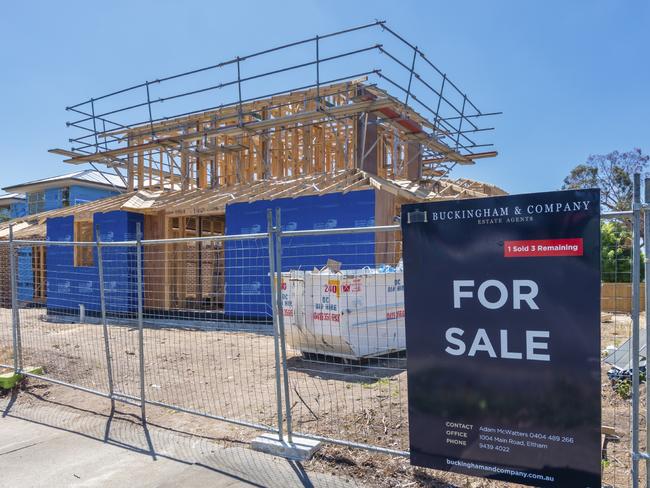
The Western Sydney councils able to apply for the financial incentives will be Liverpool, Penrith, Camden, Wollondilly, Campbelltown, Hawkesbury, Blue Mountains and Fairfield.
The aim will be to build an extra 185,000 homes in these areas within the next 20 years. Currently, there is a shortage of 100,000 homes across Sydney.
Mr Taylor said, until recently, only 17,000 homes each year were being built.
This is half the number required to keep up with population growth.
Historically, Mr Taylor said Western Sydney councils had simply taken too long to approve new developments.
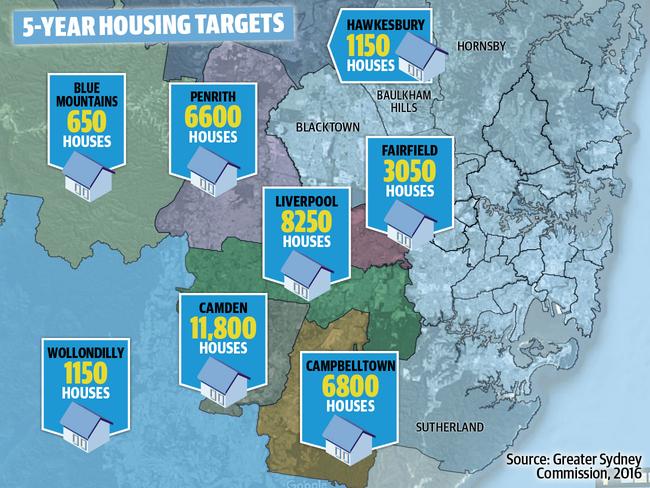
“We need them substantially faster than has been the historical experience,” he said.
“We know approvals have taken too long. Housing is a bigger issue in Sydney than it is in any other city. We want other outcomes to be comparable or better than other states.”
Mr Taylor said there was a focus on creating residential housing within an 800m zone around major train stations.
He argued having the right transport infrastructure was essential when building new homes.
“The two things holding back housing growth are the speed of rezoning and approvals and second is the pace of investment in local infrastructure,” he said.
“The funding will be tied to delivery of planning reforms and housing outcomes.”
Liverpool mayor Wendy Waller said extra cash would help the council build capacity to fast-track approvals, with the value of DAs considered by Liverpool having jumped from $313 million in 2013 to more than $1 billion this year, and planning staff unable to cope.
“I think local government is stuck, with the expectation we can accelerate growth reliant on resources we have internally,” she said.
“If we can get the volume of planners to come into the areas where the growth is, that would be a positive for everybody but it is about ensuring we have the resources to pull that off.”
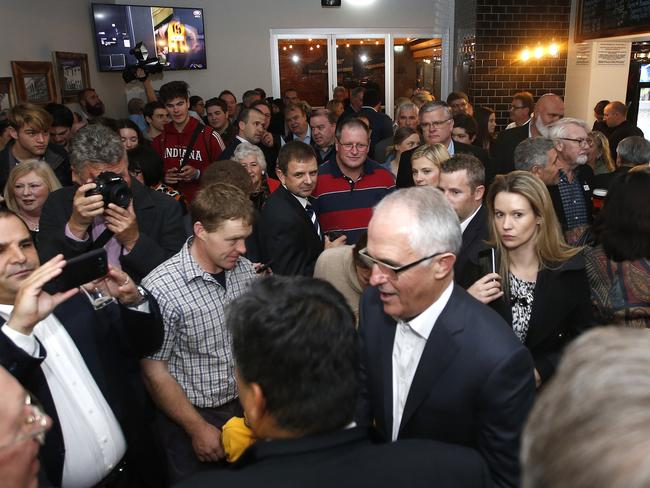
Wollondilly mayor Judith Hannan said the council didn’t have the staff to go through all the applications and re-zoning proposals.
“The poor staff here should only have 25 DAs at a time each but sometimes it’s up to 40 or 50,” she said.
Wollondilly general manager Luke Johnson said the council had been “flooded” with proposals since about 2011.
“There is an enormous amount of activity and we need to mindful that this activity gets turned into a application on a planner’s desk,” he said.
Fairfield mayor Frank Carbone said the city had allocated $1 million to study opportunities for more housing in the area, and extra resources would help fast-track that, but that a shortage of planning staff was an issue.
“That’s something that needs to be overcome, and one of the things that has been lost is the challenges councils have been facing because of this extra development demand,” he said.

Property Council chief of policy and housing, Glenn Byres, welcomed the accouncement, saying it would “pay dividends”.
“We’ve got a surge in population and house prices, so it makes sense to get on with the task of accelerating supply to meet demand and use it as an opportunity to cut the cost of housing delivery,” he said.
“Incentives to cut the time, cost and red tape that are baked into the cost of new housing will help tilt the favour back in favour of homebuyers.
“We know NSW has the worst planning system in the nation, so the Commonwealth’s decision to invest in a program to reduce planning delays and get more homes to market quicker will pay dividends.”
Mr Byres said a faster planning system would help support jobs in the west.
Prime Minister Malcolm Turnbull and Mr Morrison are spending time in Western Sydney this week selling to voters in marginal seats how much additional funding has been directed at improving their services and cost of living in the federal Budget.
The Prime Minister last night met with patrons at the Mount Gambier Jens Hotel.
Earlier in the day, in Richmond, Mr Turnbull dismissed questions about the Coalition trailing Labor 47:53 in the latest Newspoll.
He said the Budget was “very fair” and “pro-growth”.
“Our commitment is in Western Sydney and indeed, in all the other parts of Australia I will visit this week, is to continue to develop growth for Australians to get ahead,” he said.
“Everything we are doing is focused on that. It is delivering the investment, whether it is infrastructure in Western Sydney or the defence industry plan or the Inland Rail, right across the board, this Budget is ensuring the future of our children and grandchildren.”
To access the cash, the councils will need to apply to the state and federal government to reform their planning laws.
The total amount of funding available is still being negotiated under the Western Sydney City Deal, but Mr Taylor confirmed it amounted to tens of millions of dollars.
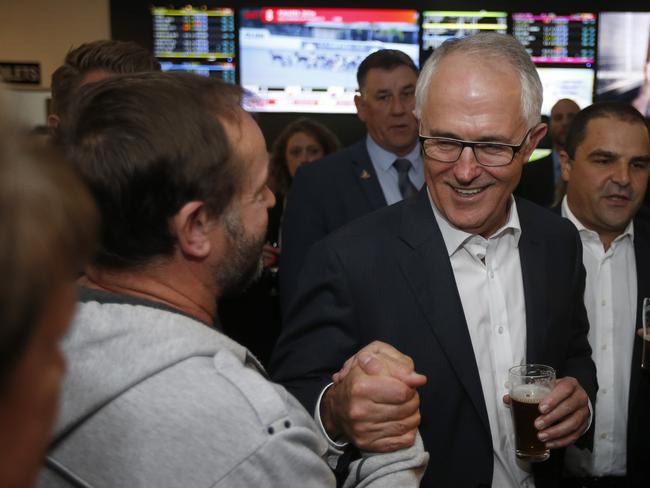
GRAND DESIGNS AIMED AT FIXING HOME PROBLEMS
JASON TIN
CREATING more housing that seniors are actually willing to downsize into — like smaller townhouses close to hospitals or public transport — is the key to fixing the housing affordability issue.
The idea is contained within a Property Council of Australia report that also calls for a freeze on all taxes and charges that impact house prices.
Its report was recently presented to a number of NSW state MPs. And it has been handed to former RBA governor Glenn Stevens, who is advising the government on how to help first home buyers enter the market.
Among the ideas is implementing a similar scheme to WA’s “Keystart program”, which helps disadvantaged people find affordable housing through low-deposit loans.
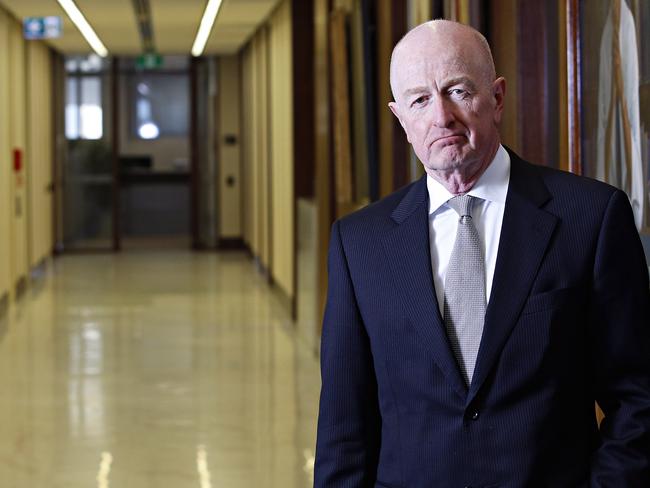
The Property Council also calls for the progressive removal of stamp duty. But a key idea is urging the government to nudge empty-nesters towards downsizing by “encouraging the supply of senior-appropriate housing via special planning consideration in the relevant planning legislation and instruments”.
Such homes would be close to hospitals, transport and other amenities, and would generally be smaller dwellings suitable for elderly couples or singles.
The Property Council has proposed creating a new, special unit to focus on delivering housing supply, which would be tasked with reviewing vacant or “under-utilised” property owned by the government that could be used to create affordable housing stock.
In the short term, a revision of stamp duty thresholds and rates has been proposed until it can begin to be phased out.
The Property Council also supports changing “current lot mix controls that mandate 60 per cent are required to have lot frontages of greater than 11m and none are able to have less than 10m frontage in low density residential land”.
“Implement instead maximum density, with a minimum number of larger lots, and extend code assessment to this type of development,” it recommends


